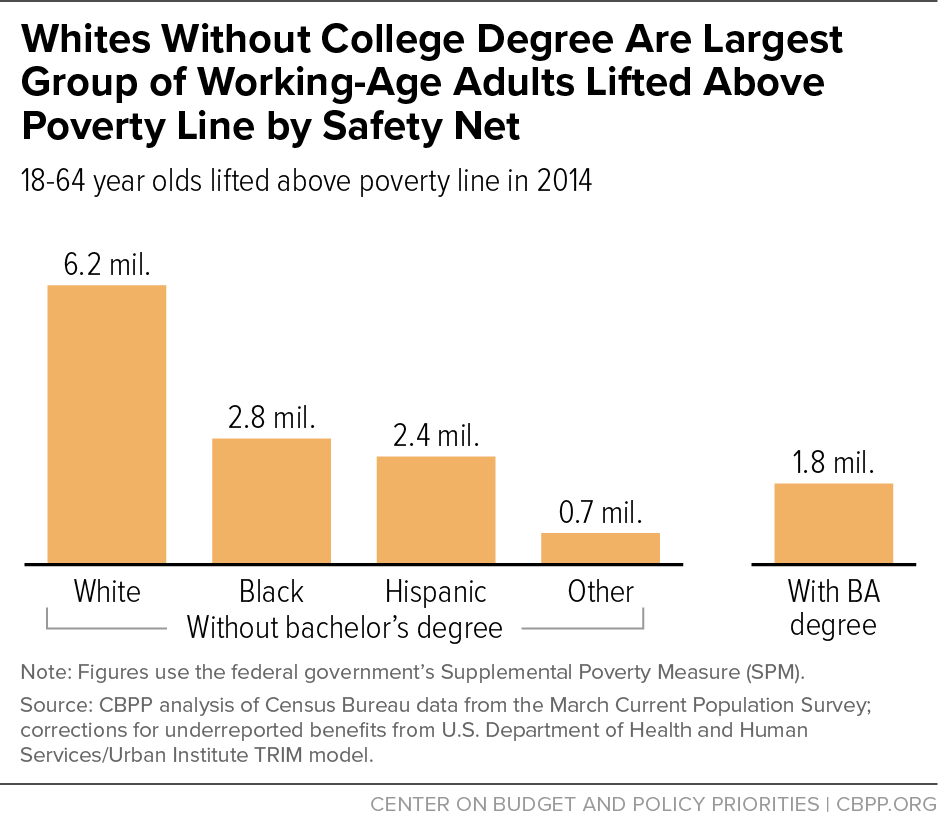BEYOND THE NUMBERS
With the potential this year for substantial cuts in poverty reduction programs and the Affordable Care Act’s (ACA) repeal, people without a bachelor’s degree — including working-class whites — have the most at stake, our new analysis finds. Poverty reduction programs play a key role in improving the economic security of this largely low-income, working-age group.
About 6 in 10 working-age adults lack a bachelor’s degree, but nearly 9 in 10 adults whom government programs lift above the poverty line — or 12.2 million adults — lack a degree, our analysis shows. Similarly, the Urban Institute estimates that about 8 in 10 working-age adults who stand to lose health insurance if policymakers repeal the ACA — or 20.6 million adults — lack a degree.
People of all races and ethnicities who lack a college degree receive significant help from the safety net, but the results for white working-age adults (aged 18 to 64) stand out in two significant ways. First, among working-age adults without a degree, the safety net lifts 6.2 million whites above the poverty line — more than any other racial or ethnic group. (See graph.)
Second, among otherwise-poor working-age adults lacking a college degree, safety net programs reduce poverty proportionately more for white adults than others — by 44 percent for the former, compared to 35 percent for the latter. Still, poverty rates among people without a college degree are substantially higher for blacks and Hispanics than for whites — whether or not one considers the impact of safety net programs.
Our analysis also shows that the poverty rate before accounting for government programs is more than three times higher among working-age adults without a college degree (30.4 percent) than among other adults (8.7 percent). Moreover, more than 31 million working-age adults without a college degree had incomes below the poverty line in 2014 before counting government benefits and taxes. The safety net reduces the number of such adults in poverty by two-fifths.
These findings are particularly noteworthy in light of increased public attention to the economic plight of working-class people. Largely overlooked in the discussion to date, however, is that the nation’s poverty reduction programs provide extensive support to adults lacking a college degree and they would be the main losers under proposals to cut these programs that may emerge in coming months.

